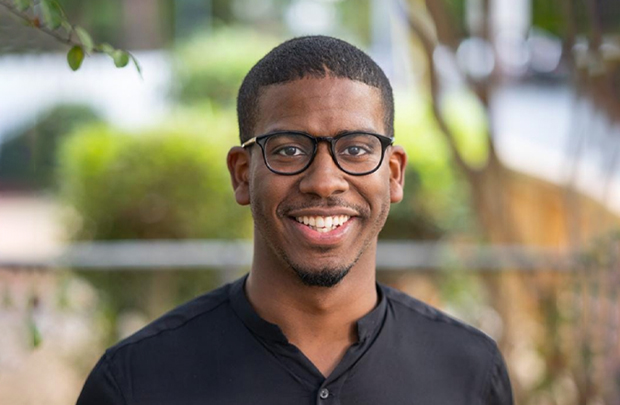
Sixto Cancel became an advocate at an early age when he had to argue his way out of an adoption. Today, Sixto is advocating for child welfare reform on the national stage as the leader of Think of Us. And he’s using data to do it.
We talked with Sixto about his work and future plans.
You’re 29 years old, and you’ve been a foster care advocate for nearly half of your life! What drives you?
When I was a teen, I was adopted by a racist, abusive woman. I called abuse hotlines and talked to people who I thought were supposed to be there to protect me. But the optics—tall Black man, white woman—made people think that it had to be me that was in the wrong, not her. I had to tape an audio recorder to my chest and document her abuse before anyone took me seriously.
That was a core experience for me because while I succeeded in protecting myself, I quickly realized it wasn’t just me. All kids in foster care live in a system that—by design—puts decision-making in the hands of everyone except the child. I joined a local foster care advisory board in Bridgeport, Connecticut, and set out on a journey to change those systems.
How did you transition from local work to national activism?
Participating on that advisory board made me realize that there were a limited number of ways for foster care alum to contribute. Really, there was only one way: we could share our story. And, of course, that is valuable in promoting a cause or a piece of legislation. But my question was: why aren’t we at the table when bills are being written?
I had my first exposure to the national stage and saw change happening on a larger scale when I participated in the Clinton Global Initiative in 2013. It was also the beginning of an ongoing relationship with the federal government that continues to this day.
Most recently, I’ve been working with the Children’s Bureau to convene town halls where child welfare leaders have meaningful dialog with young people. It’s been exciting to work with an administration that, I believe, has heightened people’s trust in the value of listening to people with lived experience.
Think of Us has grown and changed since you founded it in 2014. What have been some of the highlights?
I founded Think of Us with the goal of mobilizing young people in foster care to serve as leaders in reforming the child welfare system—and using data to give them the power to do it. The goal has been consistent, but the work has grown and evolved. We’re continually iterating—learning from our projects and the data we collect, and responding to needs and new opportunities.
We are probably best known for the hackathons that were held at sites around the country in 2015/2016. The events brought together child welfare leaders, nonprofit organizations, philanthropists, foster youth, and leaders from the technology sector for one or two days to find solutions to problems in the foster care system. In the beginning, people thought that using data sounded so cold! But we had over 50 wins as a result of those hackathons—like a scheduling app that was developed in California to facilitate sibling visits. And we had the huge win of changing people’s minds about data and its ability to drive change.
What are your current projects at Think of Us?
We recently wrapped up Check for Us, a national outreach campaign that connected current and former foster youth with pandemic relief funds. The funds were federal, but they were administered by states, so there was no single place for foster youth and others to go for information. We developed checkforus.org quickly—in three weeks—and connected more than 23,000 young people to 32 states before the September 30 funding deadline. As part of that project, we also distributed micro cash grants to help young people meet basic, urgent needs.
Earlier this year, we published Away from Home, a report on a study that elicited the experiences and perspectives of 78 young people who had recently lived in institutional placements. In the report, we share their stories and perspectives and make policy recommendations that the young people contributed to, reviewed, and endorsed.
Most recently, we launched Virtual Support Services. The platform allows young people and families to locate and apply for local resources, with the help of a virtual assistant. It also collects data that helps us understand needs and solutions on state and local levels. Virtual Support is currently being piloted in California, the Greater Boston area, and Washington, DC.
These projects—and everything we do—are only possible through collaborations with states and other organizations, including corporations.
What’s on the horizon?
We’re launching our new Center for Lived Experience, which takes our emphasis on bringing youth experience to the forefront to the next level. The Center is a research and development hub that allows us to build on past projects and increase our ability to capture data and stories from young people who have experienced foster care. As always, we’ll put what we learn to work identifying challenges we see in child welfare and giving the millions of young people touched by the system the conditions they need to heal, develop, and thrive.